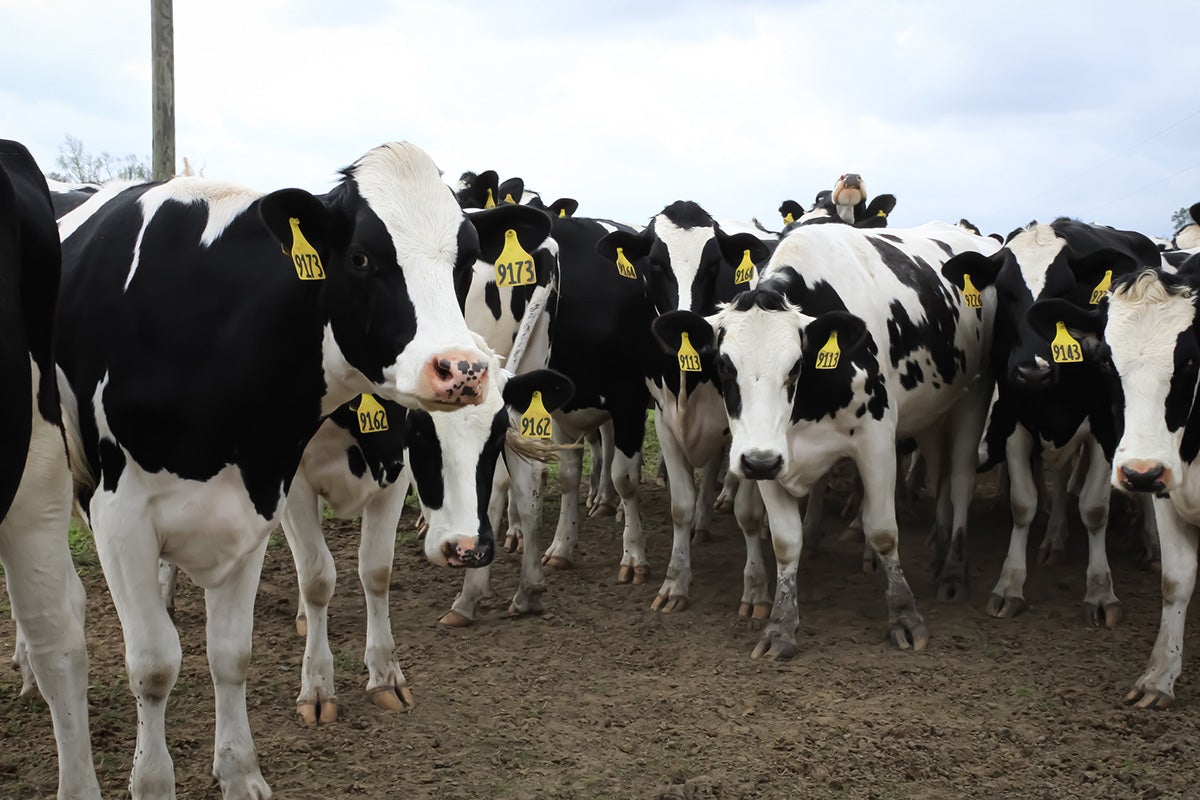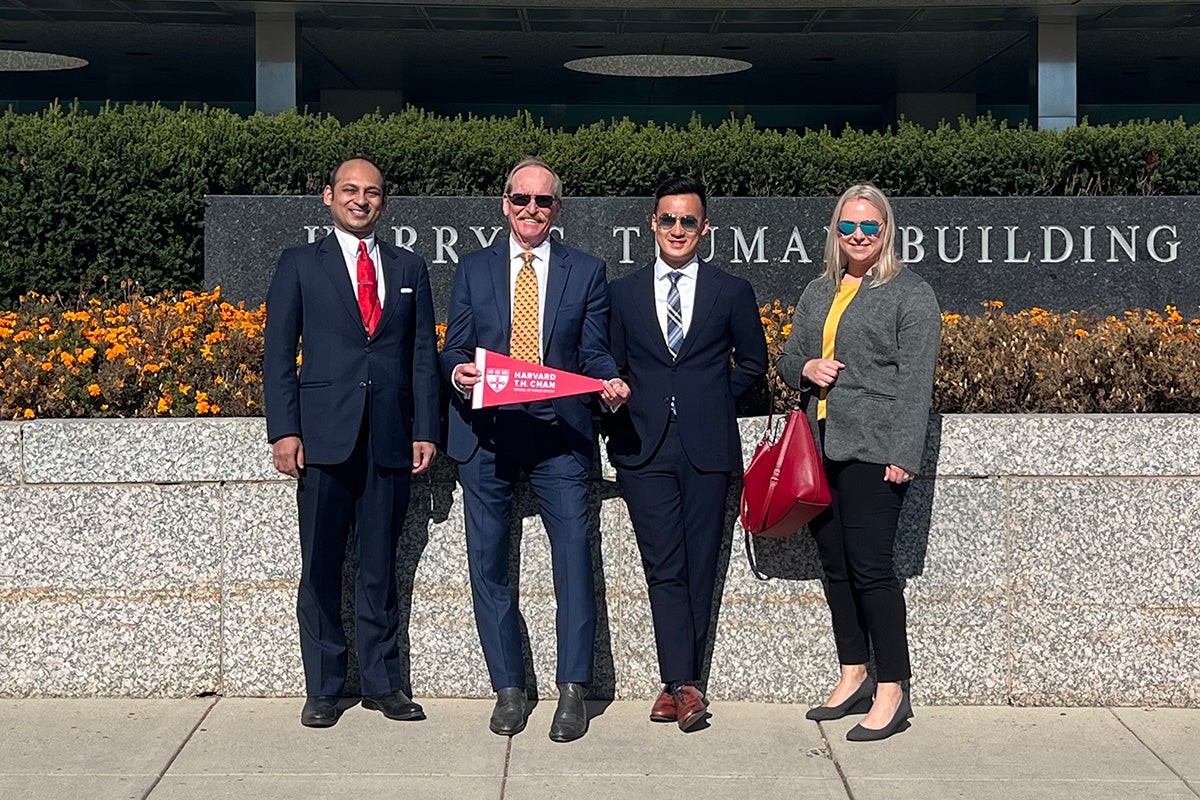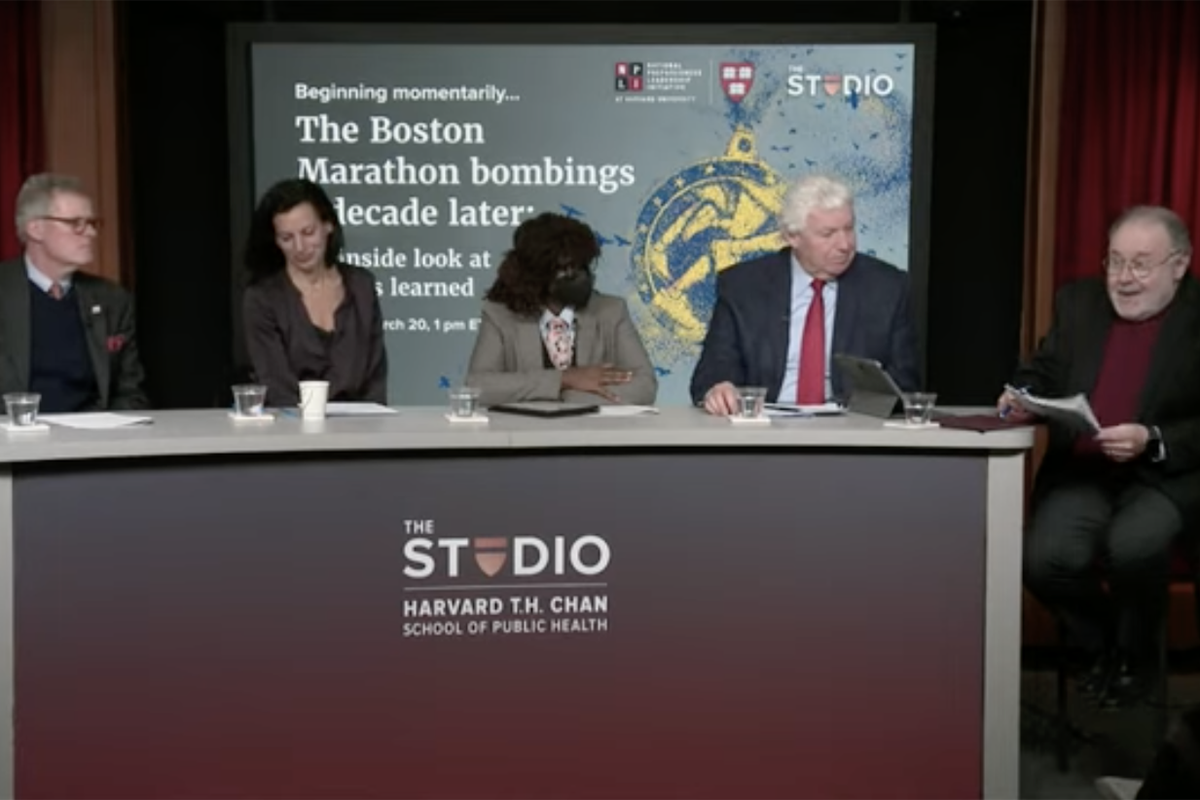Related Topics
More testing, sequencing key to quickly detecting new infectious disease variants
To speed the detection of new variants of an infectious disease, public health officials should boost rates of testing and sequencing, according to a new Harvard Chan School study.

U.S. bird flu response builds on lessons learned from COVID
CDC Director Mandy Cohen, MPH ’04, explains how country is tackling the H5N1 outbreak

Students analyze how U.S. could support allies during health emergencies
For their practicum project in the online MPH Generalist program, three students conducted a multidisciplinary analysis of the public health risks that a U.S. ally would face during escalating crises, and then outlined recommendations for how to improve…

Emergency preparedness experts preach the power of communication
Experts at Harvard Chan School's Emergency Preparedness Research, Evaluation & Practice (EPREP) Program have studied the pandemic and other public health emergencies to gain insight into best practices for communicating effectively about health risks during such situations.

Experts reflect on COVID-19, share lessons for future pandemics
The U.S. response to the COVID-19 pandemic was full of missteps—ones that experts say can inform preparations for future global health emergencies.
Viewpoint: How to protect workers in the next pandemic
In preparation for the next public health emergency, lessons learned from the COVID-19 pandemic should be used to inform new federal, state, and local laws and standards, as well as actions by employers, aimed at ensuring safe, healthy…
Applying lessons from Boston Marathon bombings to current threats
Boosting support for public health, emergency managers, and the emergency responder workforce is key to being prepared for future disasters in the U.S., according to Harvard Chan School’s Rich Serino.

Lessons learned from the Boston Marathon bombing, 10 years out
Disaster planning preparedness in the years before the bombing and coordination among leaders in its immediate aftermath contributed to the successful response, according to a panel of experts.

Higher trust in public health agencies during COVID-19 driven more by beliefs that agencies led with clear, science-based recommendations and provided protective resources, than by beliefs that agencies controlled outbreak
In the first nationally representative survey of U.S. adults on reasons for trust in federal, state, and local public health agencies’ information during the COVID-19 pandemic, researchers found that high levels of trust were not primarily due to…

Preparing hospitals and health systems for climate change
Speaking to The Boston Globe, several experts from Harvard Chan School offered their perspectives on how hospitals and health systems will cope with continuing climate change and extreme weather events.
